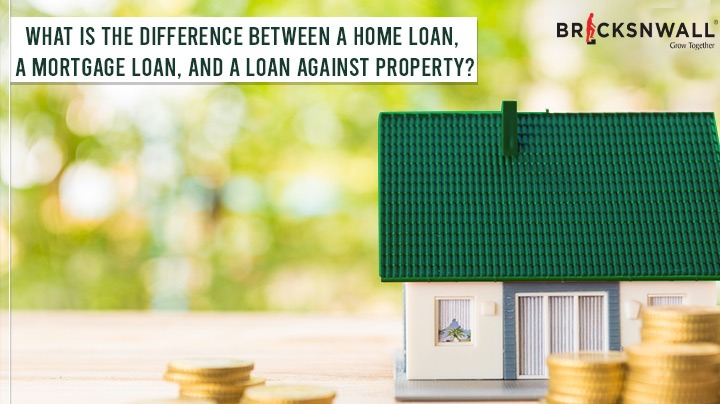What Is The Difference Between A Home Loan, A Mortgage Loan, And A Loan Against Property?
Koheli

There are
several financing alternatives available when buying a house. People frequently
consider home loans, mortgage loans, and loans secured by the property. Although
these words are frequently used interchangeably, they refer to distinct loan
types. The differences between these three loan types will be covered in this
article.
Home
Loan:
A loan type
known as a "home loan" is one that is created especially for buying a
residential property. The property is used as collateral for the loan, giving
the lender the right to sell it if the borrower is unable to make payments.
Because they are secured, home loans often offer lower interest rates than
other loan kinds.
Banks,
non-banking financial institutions (NBFIs), and housing finance firms all offer
home loans. Several variables, including the borrower's income, credit score,
the price of the property being purchased, and the loan-to-value (LTV) ratio,
affect the loan amount that is offered. Home loan repayment terms might be
anywhere from five to thirty years.
Mortgage
Loan:
A home loan
is a sort of loan obtained against an existing piece of real estate. This kind
of loan is frequently utilized for large expenses like house improvements or
debt consolidation. The mortgaged property is used as collateral for the loan,
which the borrower is obligated to repay every month.
Banks,
NBFCs, and other financial organizations offer mortgage loans. The value of the
property being mortgaged, the borrower's income and credit score, as well as
other criteria, all affect how much of a loan is granted. Mortgage loan
repayment terms might be anywhere from five to fifteen years.
Loan
Against Property:
An existing
piece of real estate that the borrower owns is used as collateral for a loan against property. For
business reasons, debt consolidation, or other significant expenses, this kind
of loan is frequently utilized. Any liens or legal problems must not be present
on the asset being utilized as collateral.
Banks,
NBFCs, and other financial organizations offer loans against property. The
value of the property being mortgaged, the borrower's income and credit score,
as well as other criteria, all affect how much of a loan is granted. A loan
against property may have a repayment term of five to fifteen years.
The
distinctions among home loans, mortgage loans, and loans secured by property
are as follows:
Home loans
are specially made for buying a home, although mortgage loans and loans secured
by real estate can be used for a variety of things, like home renovations, debt
consolidation, or other significant costs.
Collateral:
Mortgage loans and loans against property are secured against the borrower's
current property, whilst home loans are secured against the property being
acquired.
Interest
Rates: Because they are secured, home loans often have lower interest rates
than mortgage loans and loans against
property. Because they are unsecured loans, mortgage loans and loans backed by
property have higher interest rates.
Repayment
duration: Compared to mortgage loans and loans secured by property, the
repayment duration for home loans is often longer. While mortgage loans and
loans secured by property are typically payable over up to 15 years, home loans
can be serviced over up to 30 years.
Conclusion
Finally, there are three typical options accessible when it comes to financing a property purchase or covering other significant expenses: home loans, mortgage loans, and loans secured by the property. There are benefits, drawbacks, and characteristics unique to each sort of loan. It's crucial to comprehend the distinctions between these three loan sorts so you can pick the one that best suits your requirements and financial condition.




